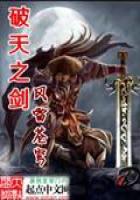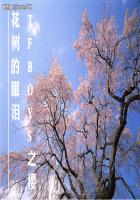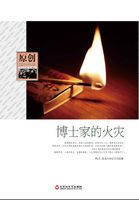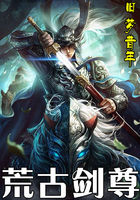The points of similarity between these North European personages and the subject of our enquiry "the King of the Wood or priest of Nemi" are sufficiently striking. In these northern maskers we see kings, whose dress of bark and leaves along with the hut of green boughs and the fir-trees, under which they hold their court, proclaim them unmistakably as, like their Italian counterpart, Kings of the Wood. Like him they die a violent death, but like him they may escape from it for a time by their bodily strength and agility; for in several of these northern customs the flight and pursuit of the king is a prominent part of the ceremony, and in one case at least if the king can outrun his pursuers he retains his life and his office for another year. In this last case the king in fact holds office on condition of running for his life once a year, just as the King of Calicut in later times held office on condition of defending his life against all comers once every twelve years, and just as the priest of Nemi held office on condition of defending himself against any assault at any time. In every one of these instances the life of the god-man is prolonged on condition of his showing, in a severe physical contest of fight or flight, that his bodily strength is not decayed, and that, therefore, the violent death, which sooner or later is inevitable, may for the present be postponed. With regard to flight it is noticeable that flight figured conspicuously both in the legend and in the practice of the King of the Wood. He had to be a runaway slave in memory of the flight of Orestes, the traditional founder of the worship; hence the Kings of the Wood are described by an ancient writer as both strong of hand and fleet of foot. Perhaps if we knew the ritual of the Arician grove fully we might find that the king was allowed a chance for his life by flight, like his Bohemian brother. I have already conjectured that the annual flight of the priestly king at Rome (regifugium) was at first a flight of the same kind; in other words, that he was originally one of those divine kings who are either put to death after a fixed period or allowed to prove by the strong hand or the fleet foot that their divinity is vigorous and unimpaired. One more point of resemblance may be noted between the Italian King of the Wood and his northern counterparts.
In Saxony and Thüringen the representative of the tree-spirit, after being killed, is brought to life again by a doctor. This is exactly what legend affirmed to have happened to the first King of the Wood at Nemi, Hippolytus or Virbius, who after he had been killed by his horses was restored to life by the physician Aesculapius. Such a legend tallies well with the theory that the slaying of the King of the Wood was only a step to his revival or resurrection in his successor.
2. Burying the Carnival
THUS far I have offered an explanation of the rule which required that the priest of Nemi should be slain by his successor. The explanation claims to be no more than probable; our scanty knowledge of the custom and of its history forbids it to be more. But its probability will be augmented in proportion to the extent to which the motives and modes of thought which it assumes can be proved to have operated in primitive society. Hitherto the god with whose death and resurrection we have been chiefly concerned has been the tree-god.
But if I can show that the custom of killing the god and the belief in his resurrection originated, or at least existed, in the hunting and pastoral stage of society, when the slain god was an animal, and that it survived into the agricultural stage, when the slain god was the corn or a human being representing the corn, the probability of my explanation will have been considerably increased. This I shall attempt to do in the sequel, and in the course of the discussion I hope to clear up some obscurities which still remain, and to answer some objections which may have suggested themselves to the reader.
We start from the point at which we left offthe spring customs of European peasantry. Besides the ceremonies already described there are two kindred sets of observances in which the simulated death of a divine or supernatural being is a conspicuous feature. In one of them the being whose death is dramatically represented is a personification of the Carnival; in the other it is Death himself. The former ceremony falls naturally at the end of the Carnival, either on the last day of that merry season, namely Shrove Tuesday, or on the first day of Lent, namely Ash Wednesday. The date of the other ceremonythe Carrying or Driving out of Death, as it is commonly calledis not so uniformly fixed. Generally it is the fourth Sunday in Lent, which hence goes by the name of Dead Sunday; but in some places the celebration falls a week earlier, in others, as among the Czechs of Bohemia, a week later, while in certain German villages of Moravia it is held on the first Sunday after Easter. Perhaps, as has been suggested, the date may originally have been variable, depending on the appearance of the first swallow or some other herald of the spring. Some writers regard the ceremony as Slavonic in its origin. Grimm thought it was a festival of the New Year with the old Slavs, who began their year in March. We shall first take examples, of the mimic death of the Carnival, which always falls before the other in the calendar.















